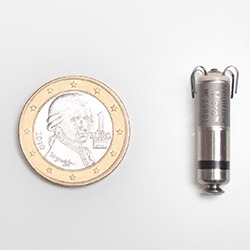
The US Centers for Medicare and Medicaid Services (CMS) have made the decision to cover leadless cardiac pacemakers, as outlined in the agency’s final National Coverage Determination (NCD). This decision will provide Medicare patient access to leadless pacemakers, consistent with the US Food and Drug Administration (FDA)-approved labelling for the devices, through Medicare’s policy of Coverage with Evidence Development (CED).
John Liddicoat, senior vice president, Medtronic, and president of the Cardiac Rhythm and Heart Failure division, says, “We are working closely with CMS to ensure patient access to the Micra TPS as quickly as possible under this decision.”
CED is a Medicare policy through which additional evidence must be collected as a condition of coverage. The leadless pacemaker decision will provide coverage for leadless pacemakers when procedures are performed in FDA-approved studies of leadless pacemakers and prospective longitudinal studies approved by CMS. Under the policy, Medtronic reports it will seek coverage of the existing FDA-approved Micra Post-Approval Study (PAS) as a well as a new study being finalised to track longitudinal data on Micra patients in the Medicare population. Coverage for Micra will become effective upon approval of these studies by CMS.
Approved by the FDA in April 2016 for patients who need a single-chamber pacemaker, the Micra TPS is the first and only leadless pacemaker approved for use in the USA. The miniaturised device was recently named at the top of US News & World Report’s list of “2016’s Biggest Achievements in Medicine.”
Comparable in size to a large vitamin, the Micra TPS is less than one-tenth the size of traditional pacemakers, delivering advanced pacing technology to patients via a minimally-invasive approach. During the implant procedure, it is attached to the heart with small tines and delivers electrical impulses that pace the heart through an electrode at the end of the device.
Unlike traditional pacemakers, the Micra TPS does not require leads or a surgical “pocket” under the skin, so potential sources of complications related to such leads and pocket are eliminated—as are any visible signs of the device, Medtronic reports.
The Micra design incorporates a retrieval feature which can be enabled, if necessary; however, the device is designed to be left in the body. For patients who need more than one device, the miniaturised Micra TPS can be permanently turned off, allowing it to remain in the body so a new device can be implanted without risk of electrical interaction, according to a company release.
The Micra TPS is the first and only leadless pacing system to be approved for both 1.5T and 3T full-body magnetic resonance imaging (MRI) scans. It is designed to allow patients to be followed by their physicians and send data remotely via the Medtronic CareLink Network. Remote monitoring of Micra devices is expected to be available later this year.
In November 2015, preliminary results from the Medtronic Micra TPS Global Clinical Trial, published in the New England Journal of Medicine, showed the Micra TPS was successfully implanted in 99.2% of patients, and that the system met its safety and effectiveness endpoints with wide margins. In August 2016, new long-term data presented in a late-breaking clinical trial at the European Society of Cardiology (ESC) congress demonstrated consistent and sustained outcomes from early performance through 12-month follow-up.












